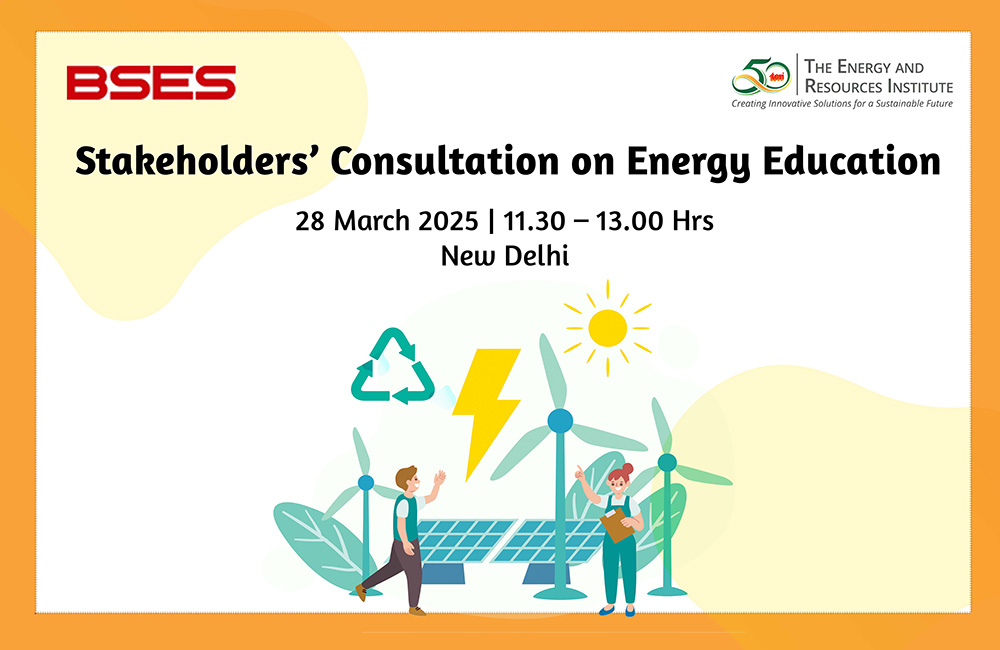Stakeholders’ Consultation on Energy Education

Background
TERI in partnership with BSES Delhi implements ‘Energy Wise Energy Rise’ and ‘EN-Powered Schools’ with schools under the jurisdiction of the Department of Education, Government of NCT of Delhi, and Municipal Corporation of Delhi (MCD) respectively. Through these projects, an attempt is being made to enable students and teachers comprehend issues related to energy conservation and energy efficiency, and establish coexistence between demand and supply curves. School fraternity is further made aware of energy safety and security measures, while also introducing them to new and upcoming developments related to non-conventional energy sources.
Stakeholders’ Consultation on the Future of Energy Education Programmes
As part of the partnership, a Stakeholders’ Consultation on the future of energy education programmes is scheduled for March 28, 2025, at TERI Headquarters, New Delhi. The platform will be a crucial step to report the developments related to the programme, gather effective feedback, and incorporate diverse perspectives from individuals and organizations who are interested in shaping the future of energy education. This consultation process serves as a platform for engaging stakeholders—such as partners, government agencies, educators, TERI, and students to discuss, deliberate, and contribute to the development of effective educational pedagogy related to energy issues. The consultation focuses on promoting energy literacy, increasing awareness of sustainable practices, and fostering the next generation of energy leaders and informed citizens.
As the global landscape continues to evolve with respect to energy needs, environmental concerns, and technological advancements, there is an increasing need for comprehensive energy education. The consultation process will also allow a collaborative approach to addressing these challenges; ensuring that all voices are heard and that educational programme are relevant, inclusive, and impactful. A few key objectives are to improve an understanding of teachers on energy issues (including energy efficiency, renewable energy sources, climate change, etc.) and the environmental impacts of energy consumption. Through the programme implementation, certain gaps have been identified. These will be discussed along with a need for re-orientation of strategies including designing of a need based energy curriculum for teachers. The proposed consultation also aims to build a more informed, engaged, and proactive school fraternity. By involving stakeholders early in the decision-making process, TERI will be able to create educational programmes that are relevant, impactful, and aligned with the broader goals of sustainability and environmental stewardship.
